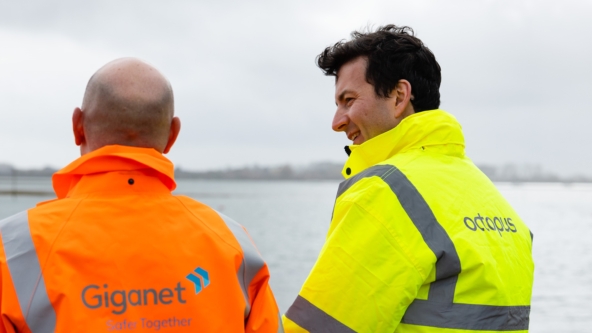People are becoming increasingly aware of climate change and its effect on our planet. Recently, events like the Covid-19 pandemic and COP26 have encouraged us to think even more about the impact of our actions on the planet. This has driven responsible-investing-related assets to all-time highs, as investors rightfully pay more attention to environmental, social, and governance (ESG) investing. According to Bloomberg, ESG assets could hit a value of $53 trillion by 2025. That’s a third of global assets under management today. Although this changing focus has much-needed benefits for people and the planet and supported those companies making a positive and valuable impact on the world, there’s no denying it has also introduced risks for investors. Concepts like ‘greenwashing’ and ‘demonstration capital’ are on the lips of many investors and the headlines of many media stories.
But what are they and how do they threaten positive progress towards solving the world’s most pressing issues?
Demonstration capital is capital that’s invested in an asset because the investor prioritises social obligations and views rather than the underlying companies’ true value. In many cases, this may put the investor in an unfortunate position where their capital is misallocated. This style of investing also regrettably contributes to price bubbles as investors inspired by the feeling of social obligation rush to participate in a sector. This drives prices further upward and encourages more investors to participate. The effect of demonstration capital can be seen in the new entrants to the renewable energy market, seeking to replicate the successes of their established peers. These companies often pay exorbitant amounts for old assets with declining revenues. They now often trade well above their fundamental values, posing an allocation risk for investors new to the sector. Our renewables business, Octopus Renewables, has made sure to avoid these pitfalls. More than 60% of the sites we have acquired since inception have been through off-market transactions and we’ve constructed more than 150 sites ourselves, rather than acquiring them when completed and at high valuations.
Greenwashing – where a firm conveys false information to boost its environmental credentials – creates a risky situation in which investors may allocate capital to a company based on false green credentials. Both demonstration capital and greenwashing are dangerous phenomena because they erode trust and confidence in responsible investing. At a time when the sector is in great need of support, as it seeks to scale its ability to deliver significant returns and meaningful impacts, these kinds of threats are deeply unhelpful.
Governing bodies and regulators have become aware that organisations are increasingly falling foul of greenwashing and are taking steps to ensure clear ESG standards are followed, for the benefit of the whole industry. Greenwashing was a major topic at Glasgow’s COP26 last year – both within the blue zone, where the majority of the conference took place, and among the people outside. Prominent commentators voiced their concerns, including Greta Thunberg, who described the event as a “greenwash festival of empty promises”, and Nikhil Rathi, the CEO of the UK’s Financial Conduct Authority (FCA), who announced that “we can’t let this greenwashing persist”. During November, the FCA issued a discussion document suggesting that “sustainable” funds should use simple and concise language for the end-client, with detailed disclosures for institutional investors. Although this goes some way in supporting confidence, many fund managers still benefit from selling their services as green, regardless of their underlying credentials.
At Octopus, it’s of fundamental importance to us that we act in the best interests of all our stakeholders: our investors, our people, our planet, our community and our shareholders. This is reflected through our hard-earned B corporation status, and our belief that there is no trade-off between doing good and making money. We’ve demonstrated our commitment to these ideals in several ways, including the Greener Homes Alliance we announced in 2021. A joint venture between Octopus Real Estate and Homes England, the government’s housing delivery agency, the Alliance will commit £175 million to provide finance and support for small and medium-sized housebuilders, which will enable them to build high quality, energy efficient homes.[1] For housebuilders that achieve an Energy Performance Certificate (EPC) of A for their housing developments, we will discount their interest rate by 2%. We’re putting our money where our mouth is because we believe this will benefit the planet, but also because we’re confident energy efficient homes will be infinitely more valuable than their energy wasting counterparts in the near future.
We believe that demonstration capital and greenwashing pose a real threat to investors and to the world’s ability to tackle climate and social problems as a whole. Investors should actively seek out authentic fund managers, who care as much about the impact of their investments as the returns they generate, are committed to complete transparency and are supported by a long-standing history that demonstrates it.
[1] Octopus Real Estate and Homes England launch £175m Greener Homes Alliance | For journalists (octopusgroup.com)
Useful insights
Renewable Energy Capability
We’re one of Europe’s largest renewable energy investors, building our business across the whole supply chain.
Chris Hulatt: Fuelling the transition: how investors can accelerate the shift to sustainable energy
With the global need for action more pressing than ever, the strategy calls for a complete rebuilding of the energy system, with renewable energy set to play a central role.
Octopus Vision
Find out what Octopus are doing to have a positive impact on our planet and its people


